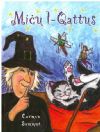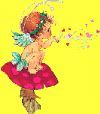|
ESL Forum:
Techniques and methods
in Language Teaching
Games, activities
and teaching ideas
Grammar and
Linguistics
Teaching material
Concerning
worksheets
Concerning
powerpoints
Concerning online
exercises
Make suggestions,
report errors
Ask for help
Message board
|
ESL forum >
Games, activities and teaching ideas > European Day of Languages
European Day of Languages
|

zuzanavilma

|
European Day of Languages
|
|
Hello everybody, I would like to prepare some activities for my students for European Day of Languages. I want them to learn a few basic phrases from a few languages and one song. As all of you here come from different countries, could I ask you to help me with that? I would appreciate any language. Thanks a lot. Zuzana
|
6 Sep 2011
|
|
|
|

carme sammut

|
|
Well, what about gathering a greeting phrase and a nursery rhyme from different countries?
It is a project I held some years back for European Day of Languages.
In Maltese:
greeting phrase: Good morning: il-ghodwa t-tajba
nursery rhyme: Iż-Żunżana ddur iddur Fuq il-bejt tal-kaċċatur,
Meta tasal taħt il-mina
tagħmel...
Żinn, Żann, Żunn
U titfgħalek il-ballun!Iz-zunzana ddur iddur
| This game can be played with any number of children. The more, the merrier! The children must sit on the floor in a big round circle facing each other, except one. This one (the bee) starts running round and round the circle while the others are singing. In his hand he must hold a soft ball, a piece of cloth, or anything that�s handy at the moment that will not hurt a child if thrown. At the end of the song the bee must drop the ball behind someone else and keep running. He who has the ball nearest to him must collect it and run after the bee. This guy is now the hunter whose purpose is to catch the bee. The bee must reach the vacant space left by the hunter before it is caught. If the bee is caught, the hunter returns to his place and the game continues. If the bee manages to sit down before it is caught, the hunter now becomes the bee and the games starts all over again. 
copied from Third World Group Malta |
|
6 Sep 2011
|
|
|

silvination

|
Some greetings in Catalan:
Good Morning= Bon dia
Hello= Hola!
Goodbye= Ad�u
Good afternoon= Bona tarda
If you �re looking for some more expressions just tell me.
As regards Catalan songs there are many you could use... If you want to listen to more traditional songs there is one" La Santa Espina" which is a "sardana" a folk dance. ..
I hope this information will help you!!
|
6 Sep 2011
|
|
|

languageleader88

|
In Andorra Catalan is also an oficial language. If you want, I can also translate/tell you more expressions. Just tell me  |
6 Sep 2011
|
|
|

maryse pey�

|
|
In French AND in Italian
GOOD MORNING AND GOOD AFTERNOON = BONJOUR - BUONGIORNO
GOOD EVENING = BONSOIR - BUONASERA
GOOD NIGHT = BONNE NUIT - BUONA NOTTE
WELCOME = BIENVENUE - BENVENUTA
HI or HELLO = SALUT - CIAO
HOW ARE YOU ? = COMMENT �A VA ? (FOR A FRIEND) or COMMENT ALLEZ-VOUS ? (RESPECTFUL) - COME VA ? (FOR A FRIEND) or E LEI COME VA ? (VERY POLITE) |
6 Sep 2011
|
|
|

apedral

|
|
in Portuguese from Brasil: GOOD MORNING = Bom Dia GOOD AFTERNOON = Boa Tarde GOOD EVENING = Boa noite GOOD NIGHT = Durma bem WELCOME = Bem vindo HI or HELLO = Oi, Ol� HOW ARE YOU ? = Como vai ? Tudo bom ? GOOD BYE = At� logo |
6 Sep 2011
|
|
|

Taminka

|
|
In Russian: GOOD MORNING = Dobroe utro GOOD AFTERNOON = Dobrii den � GOOD EVENING = Dobrii vecher GOOD NIGHT = Spokoinoi nochi WELCOME = Dobro pojalovat � HI or HELLO = Privet HOW ARE YOU ? = Kak Vashi dela? (formal); Kak dela? (informal); GOOD BYE = Do svidaniya (formal); Poka (informal);
Hope it will be useful=) |
6 Sep 2011
|
|
|

maggiejeria

|
In Spanish:
Good moorning: Buenos D�as
Good afternoon: Buenas Tardes
Good night: Buenas Noches.
Hello: Hola
How are you? : �C�mo est�s t�?
Good bye: Adios
Welcome: Bienvenido.
A characteristic Chilean�song:
Si Vas para Chile
http://youtu.be/Y3x5A9wsGPA
I hope it would be useful, if you need something else about Chile, please tell me.
A big hug,
Maggie
|
6 Sep 2011
|
|
|

mariamit

|
|
Hi
Zuzana
Here
are some of the word in Greek
good morning -kalim�ra
good evening- kalisp�ra
good night- kalin�chta
good bye -antio (sas)
hello - Gia sou / Gia sas
how are you? - ti
k�nis (informal ti kanete (formal)
Welcome � kalos irthes (informal) kalos irthate
(formal)
A great song to teach your students for that day is "I �d like to teach the world to sing in perfect harmony"
I hope this helps. Good luck whatever you do!
|
6 Sep 2011
|
|
|

deryalim

|
|
here are the some words in Turkish
good morning-g�naydın good evening-iyi akşamlar good night-iyi geceler goodbye-bay bay hello-merhaba how are you??-nasılsın? welcome-hoş geldiniz
IF YOU WANT MORE,I CAN SEND IT:))) |
6 Sep 2011
|
|
|

aliciapc

|
|
In Spanish :
Hello, how are you ? Hola, c�mo est�s?
Fine, thank you, and you ? Bien, gracias, y t� ?
Good morning ! Buenos d�as
Good afternoon! Buenas tardes
What �s your name? C�mo te llamas?
How old are you? Cu�ntos a�os tienes?
Do you like (studying) ? Te gusta (estudiar) ?
It �s hot / cold today. Hace calor / fr�o hoy.
I �m sad / happy / tired . Estoy triste , contento /a , cansado / a
If I can be of any help, Zuzana, just let me know ok?
Alicia
|
6 Sep 2011
|
|
1
2
Next >
|